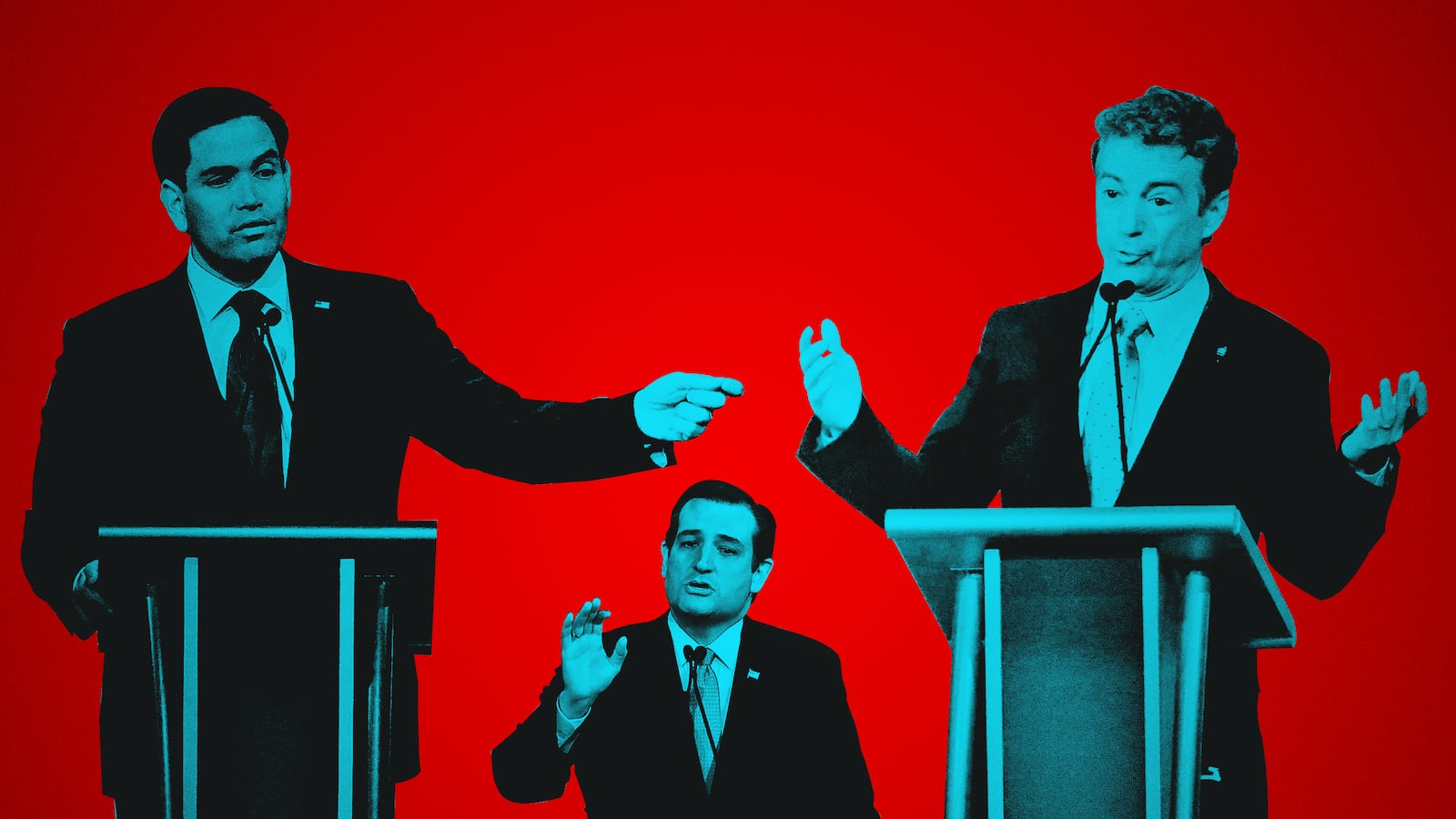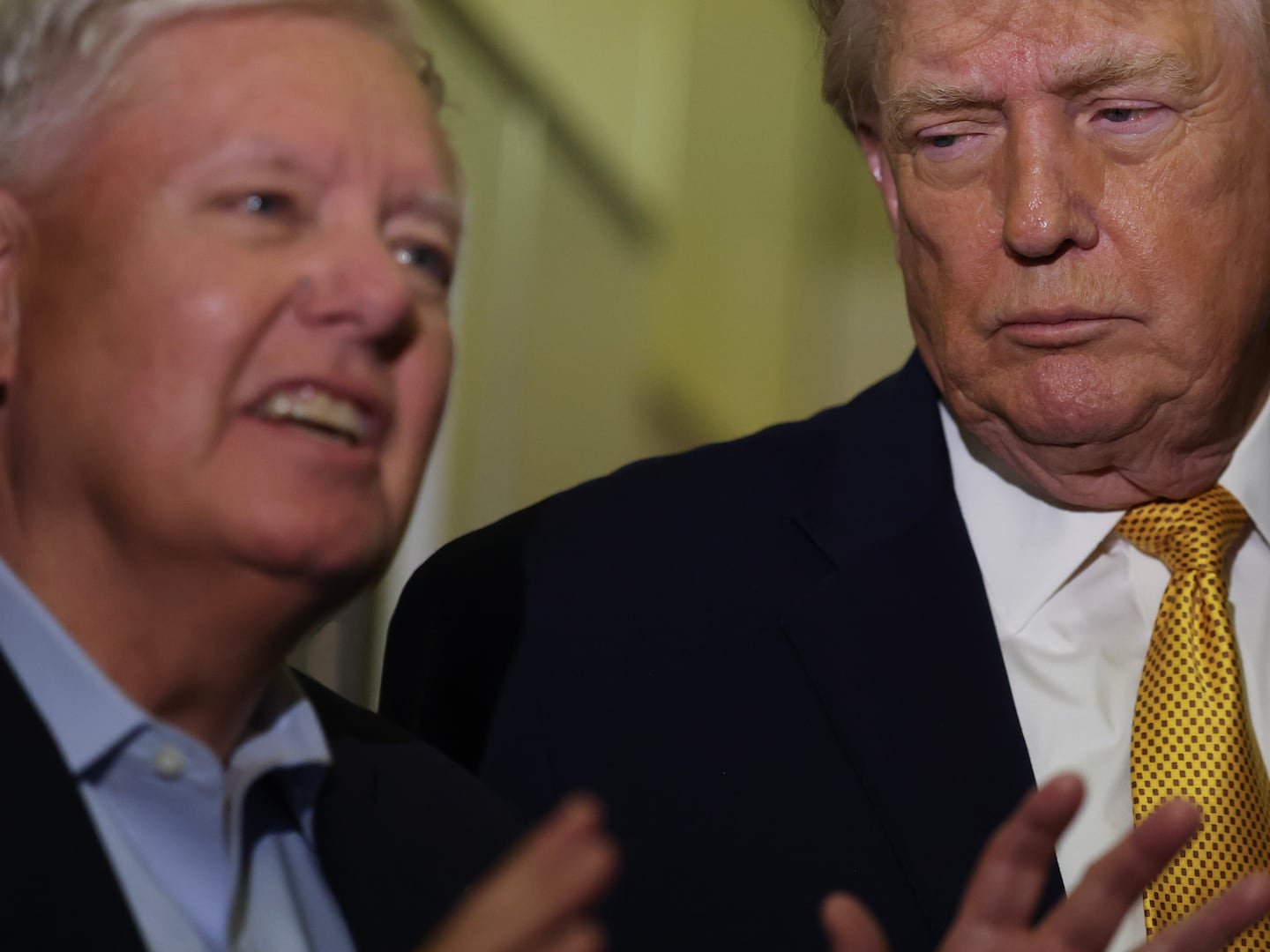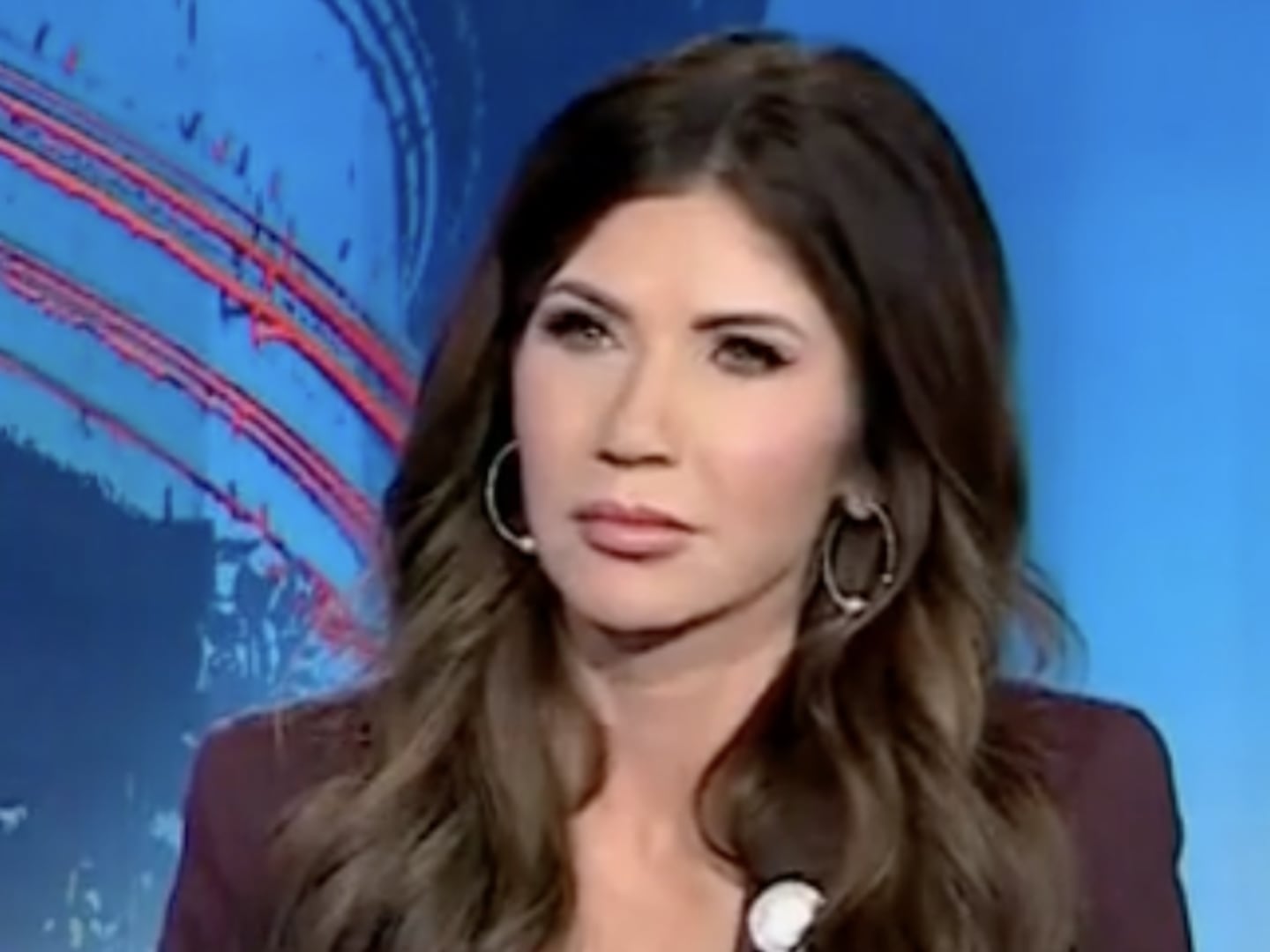They were the Tea Party’s three success stories in the Senate, the great right hope in the age of Obama. And Tuesday night, they were all at each other’s throats.
Of the three, Marco Rubio and Ted Cruz have a plausible shot at the GOP nomination. But Rand Paul, in what was his best debate performance of the race so far, was able to hold his ground—and even get in a swipe or two. But once again it was the Cruz and Rubio show—the two middle-tier candidates who at least act like they have the most to gain from these contests.
Cruz stuck to a tried-and-true strategy that he’s followed throughout his career as senator. As The New York Times’ Ross Douthat noted back in 2013, Cruz defined “himself as a national figure not by taking positions on questions that divide his party, but by picking issues where the party is basically united—Obamacare, gun control, taxes—and playing the maximalist while promising the moon.” That sets him apart from Rubio and Paul, who tried (and failed) to change the GOP’s policies on immigration and foreign policy, respectively.
Cruz triangulates within the factions of his divided party, and he did that again Tuesday night after Rubio and Paul traded barbs over foreign policy.
Paul characterized Rubio’s tax plan as a “trillion-dollar expenditure” that he would push through while also advocating for increased military spending. Rubio defended his plan, Paul brought up the military again, and Rubio accused Paul of being a “committed isolationist.”
It went on like that for another few minutes, with each senator accusing the other of not being a real conservative. Rubio said Paul would leave America undefended. Paul said Rubio would bankrupt the country while intervening in wars we should stay out of.
That gave Cruz an opening for his “middle ground” approach.
“If you think defending this nation is expensive, try not defending it,” he said to applause. “But you can do that and pay for it. You can do that and also be fiscally responsible.” To pay for defense, Cruz said, all you need is to stop paying for other things—like, say, “sugar subsidies.”
Mentioning sugar subsidies was a jab at Rubio. Those subsidies, despised by many on the right as an egregious example of crony capitalism, are backed by some of the GOP’s major donors, specifically Rubio supporter and sugar baron Pepe Fanjul. Expect to hear more from Cruz about all that in the coming weeks.
But fight night did not go as many predicted.
Jeb Bush and Rubio, the two guys facing off for the establishment lane in the primary, largely steered clear of each other this time around. Meanwhile, frontrunners Donald Trump and Ben Carson seemed to lay down their arms as well. The debate touched only lightly on Carson’s rough week of biographical vetting.
Carly Fiorina had a good night—the crowd inside the Milwaukee Theater frequently rewarded her polished, practiced answers with cheers.
She even managed to provoke Trump, who chided her for interrupting all the men on the stage.
“Why does she keep interrupting everybody?” Trump said. “Terrible.”
He was immediately booed.
Carson’s answers were meandering. He didn’t seem to have a real grasp of any of the major issues being discussed but had at least been tutored enough that he didn’t commit any significant gaffes. He briefly addressed the questions about the accuracy of his biography, which has come under assault by the media as well as by Trump.
“Well, first of all, thank you for not asking me what I said in the 10th grade. I appreciate that,” Carson quipped when asked whether the onslaught had hurt his brand.
“The fact of the matter is, you know, what—we should vet all candidates,” he said. “I have no problem with being vetted. What I do have a problem with is being lied about and then putting that out there as truth,” Carson said, and then—again—accused the media of giving Hillary Clinton a pass.
Trump, meanwhile, looks increasingly bored by the political process and mostly phoned it in yet again. He adhered to his shtick—lots of flash, platitudes, and not a ton of substance. He was able to stumble through the last few debates without much damage to his standing in the polls, but with Carson on the rise, Trump’s slow but steady decline will likely continue.
John Kasich once again got a bizarre amount of time to give rambling answers that put him to the left of the Republican field.
Still, several candidates (well, mostly Trump) paused to punch down as the Ohio governor tried to get into conversation after conversation.
After Kasich called Trump’s assertion that he could deport millions of immigrants after the construction of a border wall between the United States and Mexico “silly,” Trump attacked.
“I don’t need to hear from this man,” Trump said dismissively. “Let me tell you, you’re lucky in Ohio that you struck oil.”
When Bush tried to jump into the conversation, Trump pivoted.
“You should let Jeb speak,” Trump told Kasich, managing to sound condescending to Kasich and Bush at the same time.
Bush, for his part, later responded, “Thank you, Donald, for allowing me to speak at the debate. That’s really nice of you. Really appreciate that.”
Bush seemed annoyed that more questions weren’t directed his way. Still, he avoided doing any harm, which these days is a win for the former establishment favorite, even if he didn’t bring the fireworks his aides had been promising in the press.
But what became increasingly apparent over the course of this debate was the Tea Partiers are now as fractured as the party they did so much to revive and then divide.
The Fox Business Network moderators, who hung back and allowed the candidates to tout their differences, apparently pleased the RNC Chairman Reince Priebus, who chortled:
The only people who might have been more pleased were the Democrats, who have plenty of new ammunition to use against the GOP in the general election.







